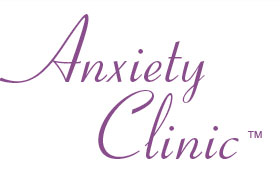Generalised Anxiety Disorder
Generalised Anxiety Disorder Symptoms - Info, Help & Advice
Generalised anxiety disorder GAD is an anxiety disorder characterised by generalised worry with respect to day to day living. Generalised anxiety disorder manifests within thoughts as anticipated difficulties, failures, problems and potential disasters regarding otherwise trivial day to day tasks and situations. Here you'll find information, help and advice with respect to understanding what causes GAD, how the cycle of GAD self perpetuates, the symptoms of GAD, why traditional treatment tends to be ineffective and also how to successfully overcome generalised anxiety disorder and its symptoms.
If you've already done your research and are looking for help in overcoming generalised anxiety disorder, you should go straight to our treatment page.
Generalised anxiety disorder symptoms
Physical symptoms for generalised anxiety disorder can vary, however there are certain symptoms that commonly appear. It's important to remember that diagnosis of generalised anxiety disorder isn't as simple as totting up the total number of symptoms and measuring it that way. The symptoms are indeed a guide, but perhaps more importantly are the type of symptoms, the combination of how they fit together and perhaps most importantly of all - the intensity and frequency of the GAD cycles.
Here is a list of the most common physical generalised anxiety disorder symptoms:
- Headaches
- Indigestion
- Stomach upsets / IBS
- Muscle tension
- Feeling light headed
- Confusion and forgetfulness
- Unexplained aches and pains
- Dry mouth and difficulty swallowing
- Chest tightness
- Elevated heart rate
Physical symptoms (in relation to generalised anxiety disorder) are almost exclusively created through long term cycles of psychological processes. You could say that these psychological processes are also symptoms of generalised anxiety disorder. However for now we'll simply give you a list of the psychological symptoms with a view to explaining how they work (and how to overcome them) later.
Here is a list of the most common psychological generalised anxiety disorder symptoms:
- Constant internal dialogue (the voice talking in your head)
- Obsessing about what may go wrong in the future
- Obsessing about safety and the well-being of yourself and/or others
- Repeatedly visualising and rehearsing scenario's in order to address potential problems
- Dwelling on past (unpleasant) experiences
- Reliving past conversations and situations, possibly testing alternative outcomes
- Perceiving threat or danger in otherwise harmless day to day activities
Relating to the above psychological symptoms is an accurate test for generalised anxiety disorder. If you feel some or many of the above symptoms are true for you then it's reasonable to assume you could be suffering with an anxiety disorder.
What causes generalised anxiety disorder?

It is often assumed that situations and circumstances are to blame for any type of anxiety. However, for generalised anxiety disorder in particular many so-called situations would be considered trivial or not worth worrying about by a non-sufferer.
This of course doesn’t detract from the discomfort the generalised anxiety disorder sufferer is experiencing. For the sufferer, even realising intellectually that a situation may be trivial in reality - doesn’t change the anxious emotions they’re feeling.
Imagine two people, each needing to visit the same post office. The first is an anxiety sufferer and they worry in advance about what may happen. Will there be a car accident? Will there be long queue's? Will they feel ill in the post office? Will they get everything they need? What if, what if? They feel anxious before they even leave the house. The non-sufferer, needing to visit the same post office thinks "I need a book of stamps and a passport application form..." Then they leave home for the post office without any undue anxiety.
It would make sense that in 'reality' both the anxiety sufferer and the non-sufferer are making the same trip, to the same post office, at the same time, for the same reason... but one feels anxious and the other doesn't. If this is the case and everything other than their thoughts are identical - where must the anxiety be coming from?
Thus, generalised anxiety disorder is not actually created by external situations - rather it exists as a result of ongoing emotional responses to thought processes. If you consider when specifically you feel anxious it almost always happens when you’re ‘thinking’ or you notice it just after you’ve been ‘thinking’.
Thinking creates feelings and anxiety is a feeling (emotional state).
Does generalised anxiety disorder go away on its own?
The clinical definition of generalised anxiety disorder implies you need to have experienced it for at least six months before its officially classed as a disorder. That’s a long time to suffer before you’re even sure what your problem is.
The reason generalised anxiety runs for these long periods is because it’s maintained by a cycle. Basically one thing feeds another and this is what keeps the disorder running. The elements of generalised anxiety disorder are:
- Repetitive unsolicited thoughts
- Feelings of anxiety
These two elements feed each other and when working together create a self perpetuating cycle (a disorder). Generally speaking, the longer the cycle runs - the stronger and more habitual it becomes. The more habitual the cycle becomes, the more it reaches into different parts of the sufferers life. The more parts of the sufferers life the cycle can get into, the more thoughts and potential emotions it gains access to. Does it sound like this will go away on its own?
More often than not, if left to its own devices any anxiety disorder will spiral downwards sometimes gradually and sometimes out of control. Realising you have an anxiety disorder and doing nothing about it could well come back to bite you.
How does generalised anxiety disorder work?

In order to understand how generalised anxiety disorder works we first need to understand a little about how thoughts are produced in our mind. The first way is through stimulation - for example seeing an advert for Asda on television could pop a thought into your head that you need to go and buy some milk. Another stimulation could be you feel hungry and the thought of that chocolate bar in the fridge jumps into your mind.
However, sometimes thoughts pop into your head without any sort of stimulation. We call these unsolicited thoughts. Most people are aware they have unsolicited thoughts and at the very least they are a nuisance - at worst they can ruin your life. In order to understand where the problematic unsolicited thoughts come from we need to consider how our mind grades thoughts and experiences in terms of importance.
Fortunately, the importance rating system the brain uses is really simple. If a thought or experience elicits a strong emotional response (feeling) - it’s important. If it doesn’t - it’s not. Simple.
For example, if you split up with your long term partner and get a strong emotional response (both to the experience and the thoughts about the experience) - the brain considers it to be important. Thus it files this information at the top of the importance pile. If you walk past your car and think it needs washing but you couldn’t care less then there’s little or no emotional response. The brain considers the thought to be unimportant and discards it.
Here’s where all this comes together and makes sense. When you’re not particularly paying attention, unsolicited thoughts pop into your mind. However, these thoughts are not random. Unsolicited thoughts are always selected (by the brain) from the top of the importance pile. Whatever is up there at the top gets beamed into your conscious awareness. Now, let’s consider what you keep putting at the top of your importance pile. Each time you think about something and feel anxious about it - it instantly gets filed up near the top of your importance pile. Then when your mind has a moment it grabs one of those thoughts and feeds it back into your attention again. Do you see a cycle here?
The generalised anxiety disorder cycle...
The generalised anxiety disorder cycle works as follows for each thought you feel anxious about.
- An unsolicited thought appears in your mind
- You focus your attention on the thought and play out various scenarios
- When a scenario plays out badly - you feel anxious
- The brain associates the anxious feeling with the thought
- The brain considers the thought important because it elicited a strong emotional feeling
- The brain files the thought as ‘important - please recycle’ at the top of the pile
- The thought gets recycled - Go to 1.
The above cycle focuses on the process surrounding just one thought. If you have many different anxious thoughts (regarding different situations, tasks, problems, etc) each one will have it’s own cycle. This is why people get trapped by generalised anxiety disorder. The cycle is self feeding.
Traditional treatment and generalised anxiety disorder...

Let’s consider what doesn’t work. Anti-anxiety and anti-depression medication is given out like sweets in our society. These drugs work by shutting down certain functions within the brain, namely the connections between thought and response. What the drugs don’t do is affect the real problem, which is the ongoing thought cycle. If you’re on drugs for anxiety - have they really stopped you having the thoughts that troubled you to start with?
Even though drugs may take the edge off the anxiety symptoms, the problem is still there getting worse and worse. Are you going to take drugs for the rest of your life or do you want a genuine way to get rid of this disorder for good?
The other common treatment method which also doesn’t work is logic based advice. How many people have told you not to worry, how everything will be alright or to just not think about it? Does it make any difference? Many generalised anxiety disorder sufferers realise intellectually that they’re worrying about trivia... it’s just they can’t help it - right?
You may hope that having counselling or getting a GP referral to a mental health provider will help you. Unfortunately, (and this is just what we're told by our clients), counsellors and mental health providers tend to talk a lot, ask plenty of questions, dig up the past, tick boxes, fill in forms... but they don't get results. So really what you need to ask yourself is "What do I want? Do I want questions asked and boxes ticked... or do I want results so I can feel better and get my life back?"
How to recover from generalised anxiety disorder...

The only person that can do anything about your anxiety disorder right now is you. If you choose to put up with it or hope it'll go away on its own - that's your decision and we can respect it. However if you want to overcome your anxiety disorder, recover and get your life back, you need to do something about it. Now, all we can do is make you an offer... it's up to you to commit to taking action. If you've already had enough of suffering with anxiety and are willing to help yourself - you can have your life back.
We run an established Anxiety Clinic in Staffordshire where we've been helping people just like you to overcome anxiety disorders for over fifteen years. The great news is that if you don't live in or near to Staffordshire we can still work together. In addition to Face to Face Consultations at our Clinic we also offer Online Consultations via Skype, so no matter where you are in the UK we can still help you. Remember that you'll be working with the exact same Specialists online as you would if you came to our Clinic in person.
Another benefit of us offering Online Consultations is that it keeps our overheads and operating costs down. This means we are able to offer very, very reasonable rates for our clients. We think you'll be pleasantly surprised at how affordable our services are.
We also offer a no quibble guarantee. If by the end of your Initial Consultation you decide that for any reason you don't want to continue working with us there will be no charge for that session. It really is that simple. You only pay for the session if you're fully satisfied and decide to continue working with us.
What do you have to lose other than your anxiety?
Choose the link that most interests you...
I'm interested in Face to Face Consultations (In Staffordshire)







